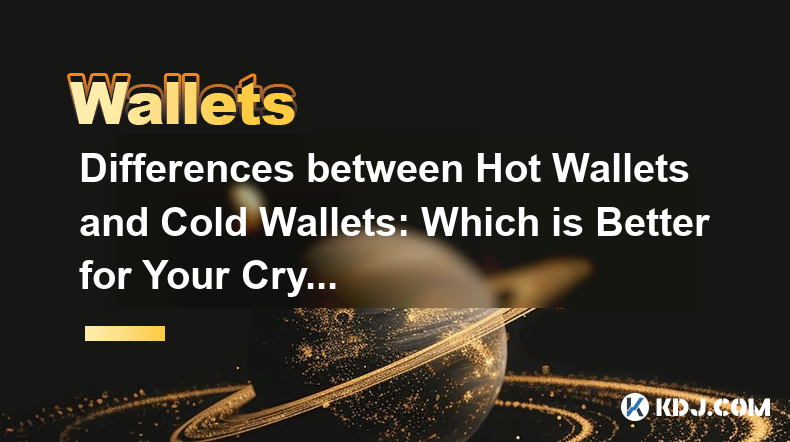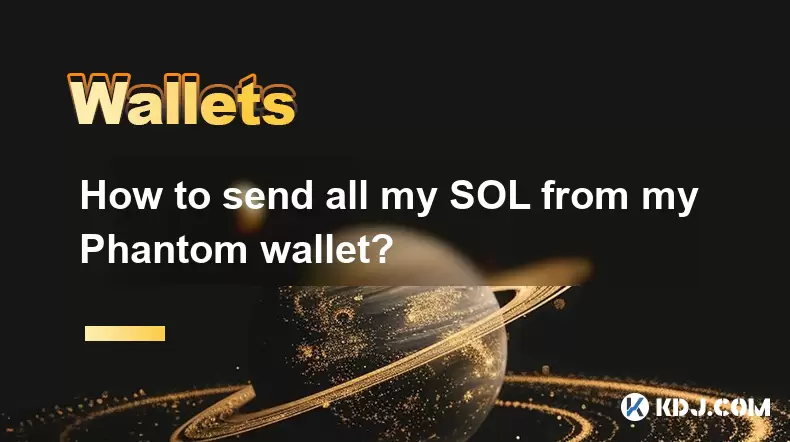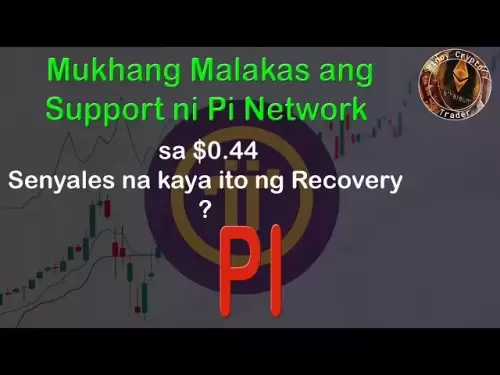-
 Bitcoin
Bitcoin $108,708.8110
0.60% -
 Ethereum
Ethereum $2,561.6057
1.91% -
 Tether USDt
Tether USDt $1.0001
-0.03% -
 XRP
XRP $2.2795
0.57% -
 BNB
BNB $662.2393
1.00% -
 Solana
Solana $153.1346
3.74% -
 USDC
USDC $1.0000
0.00% -
 TRON
TRON $0.2877
0.97% -
 Dogecoin
Dogecoin $0.1710
3.93% -
 Cardano
Cardano $0.5871
1.61% -
 Hyperliquid
Hyperliquid $39.6663
1.68% -
 Sui
Sui $2.9032
0.79% -
 Bitcoin Cash
Bitcoin Cash $496.1879
1.71% -
 Chainlink
Chainlink $13.5807
3.01% -
 UNUS SED LEO
UNUS SED LEO $9.0777
0.61% -
 Stellar
Stellar $0.2514
4.51% -
 Avalanche
Avalanche $18.1761
1.86% -
 Shiba Inu
Shiba Inu $0.0...01173
1.72% -
 Toncoin
Toncoin $2.8010
-4.23% -
 Hedera
Hedera $0.1594
3.21% -
 Litecoin
Litecoin $87.0257
-0.53% -
 Monero
Monero $319.1217
1.79% -
 Polkadot
Polkadot $3.3853
0.68% -
 Dai
Dai $0.9999
-0.01% -
 Ethena USDe
Ethena USDe $1.0003
0.02% -
 Bitget Token
Bitget Token $4.3420
-0.97% -
 Uniswap
Uniswap $7.3772
1.39% -
 Aave
Aave $286.6277
5.61% -
 Pepe
Pepe $0.0...09994
2.33% -
 Pi
Pi $0.4589
1.76%
Differences between Hot Wallets and Cold Wallets: Which is Better for Your Crypto Assets?
Hot wallets are convenient for frequent transactions but less secure, while cold wallets offer high security for long-term storage of cryptocurrency.
Apr 16, 2025 at 03:21 pm

When it comes to securing your cryptocurrency assets, choosing the right type of wallet is crucial. There are two primary types of wallets: hot wallets and cold wallets. Each has its own set of advantages and disadvantages, and understanding these can help you make an informed decision about which is better suited for your needs.
What are Hot Wallets?
Hot wallets are digital wallets that are connected to the internet. They are designed for frequent transactions and are typically used for everyday spending and trading. Examples of hot wallets include mobile apps, desktop software, and web-based platforms. Because they are online, hot wallets are more convenient for quick access and transactions.
However, the convenience of hot wallets comes with a higher risk of security breaches. Since they are connected to the internet, they are more vulnerable to hacking and phishing attacks. It is essential to use strong passwords and enable two-factor authentication (2FA) to enhance security. Despite these measures, hot wallets are generally considered less secure than cold wallets.
What are Cold Wallets?
Cold wallets, on the other hand, are offline storage solutions that are not connected to the internet. They are used for long-term storage and are considered the safest way to store large amounts of cryptocurrency. Examples of cold wallets include hardware wallets and paper wallets.
Because they are offline, cold wallets are much less susceptible to hacking and cyber attacks. To access your funds, you need to physically connect the cold wallet to a device, which adds an extra layer of security. However, this also means that cold wallets are less convenient for frequent transactions.
Security Comparison
When it comes to security, cold wallets have a clear advantage over hot wallets. Cold wallets are designed to protect your assets from online threats, making them ideal for storing large amounts of cryptocurrency. On the other hand, hot wallets are more exposed to online risks but are better suited for everyday transactions.
If security is your top priority, a cold wallet is the better choice. However, if you need to access your funds frequently and are willing to take on more risk, a hot wallet might be more suitable. It's important to weigh the trade-offs between convenience and security when deciding which type of wallet to use.
Ease of Use and Accessibility
Hot wallets are generally easier to use and more accessible than cold wallets. They are user-friendly and can be accessed from any device with an internet connection. This makes them ideal for people who are new to cryptocurrency or those who need to make frequent transactions.
In contrast, cold wallets can be more complex to set up and use. Hardware wallets, for example, require you to purchase a physical device and follow specific steps to secure your funds. Paper wallets require you to generate and print out your private keys, which can be a more manual process. However, once set up, cold wallets offer a high level of security and peace of mind.
Cost Considerations
The cost of using hot and cold wallets can vary significantly. Hot wallets are often free to use, with any associated costs coming from transaction fees. Some platforms may charge a small fee for advanced features, but overall, hot wallets are more budget-friendly.
Cold wallets, on the other hand, can be more expensive. Hardware wallets, for instance, require you to purchase the device, which can range from $50 to $200 or more. Paper wallets are cheaper but require you to have access to a printer and a secure location to store your keys. When considering the cost, it's important to factor in the level of security and peace of mind that cold wallets provide.
Choosing the Right Wallet for Your Needs
When deciding between a hot wallet and a cold wallet, it's important to consider your specific needs and circumstances. If you are holding a large amount of cryptocurrency and prioritize security, a cold wallet is the better choice. If you need to access your funds frequently and are comfortable with a higher level of risk, a hot wallet might be more suitable.
It's also possible to use a combination of both types of wallets. You can store the majority of your funds in a cold wallet for long-term security and keep a smaller amount in a hot wallet for everyday transactions. This approach allows you to balance convenience and security effectively.
Setting Up a Hot Wallet
Setting up a hot wallet is relatively straightforward. Here are the steps to get started:
- Choose a reputable hot wallet provider: Research and select a trusted platform that offers a hot wallet service.
- Download the app or access the website: Depending on the provider, you may need to download a mobile app or access a web-based platform.
- Create an account: Follow the provider's instructions to create an account, which typically involves providing an email address and setting a strong password.
- Enable two-factor authentication (2FA): For added security, enable 2FA on your account.
- Generate a wallet address: Once your account is set up, generate a wallet address to receive and send cryptocurrency.
- Fund your wallet: Transfer cryptocurrency from an exchange or another wallet to your new hot wallet address.
Setting Up a Cold Wallet
Setting up a cold wallet can be more involved, but the process is still manageable. Here are the steps to set up a hardware wallet:
- Purchase a hardware wallet: Choose a reputable brand and purchase a hardware wallet from a trusted source.
- Unbox and connect the device: Follow the manufacturer's instructions to unbox and connect the hardware wallet to your computer.
- Initialize the device: Use the device's interface to initialize it, which typically involves setting a PIN and generating a recovery seed.
- Securely store the recovery seed: Write down the recovery seed and store it in a safe, offline location.
- Install the wallet software: Download and install the wallet software from the manufacturer's website.
- Connect the wallet to the software: Use a USB cable to connect the hardware wallet to your computer and open the wallet software.
- Generate a wallet address: Use the software to generate a wallet address for receiving and sending cryptocurrency.
- Transfer funds to the cold wallet: Send cryptocurrency from an exchange or another wallet to your new cold wallet address.
Frequently Asked Questions
Q: Can I use both a hot wallet and a cold wallet at the same time?
A: Yes, you can use both types of wallets simultaneously. Many cryptocurrency users keep the majority of their funds in a cold wallet for long-term storage and security, while maintaining a smaller amount in a hot wallet for everyday transactions.
Q: How do I recover my funds if I lose access to my cold wallet?
A: If you lose access to your cold wallet, you can use the recovery seed to restore your wallet on a new device. It's crucial to store your recovery seed in a secure, offline location to ensure you can recover your funds if needed.
Q: Are there any risks associated with using a paper wallet?
A: Yes, paper wallets can be risky if not handled properly. If someone gains physical access to your paper wallet, they can steal your funds. Additionally, paper wallets can be damaged or lost, so it's important to store them in a secure location and consider making multiple copies.
Q: Can I store multiple types of cryptocurrency in one wallet?
A: Many wallets, both hot and cold, support multiple types of cryptocurrency. However, it's important to check the specifications of the wallet you choose to ensure it supports the cryptocurrencies you want to store.
Disclaimer:info@kdj.com
The information provided is not trading advice. kdj.com does not assume any responsibility for any investments made based on the information provided in this article. Cryptocurrencies are highly volatile and it is highly recommended that you invest with caution after thorough research!
If you believe that the content used on this website infringes your copyright, please contact us immediately (info@kdj.com) and we will delete it promptly.
- Bitcoin Wallet Hack? Coinbase Exec Sounds the Alarm on $8B Whale Movement
- 2025-07-07 18:30:12
- Mercado Bitcoin, Tokenization, and XRP Ledger: A Latin American Power Play
- 2025-07-07 18:30:12
- Ripple's RLUSD: Revolutionizing Cross-Margin Trading for Institutions
- 2025-07-07 18:35:12
- Babylon, Bitcoin, and the EVM Mainnet: A New Era for BTCFi?
- 2025-07-07 16:30:11
- Queen Elizabeth Coin Sells for £31,000: A Royal Fortune in Your Pocket?
- 2025-07-07 16:30:11
- XRP Price Check: Will Resistance Trigger a July Drop?
- 2025-07-07 17:10:12
Related knowledge

How to cancel a pending transaction in Phantom wallet?
Jul 03,2025 at 07:21pm
Understanding Pending Transactions in Phantom WalletA pending transaction in the Phantom wallet occurs when a user initiates a transfer or interaction with the Solana blockchain, but it hasn't yet been confirmed by the network. This can happen due to various reasons such as low transaction fees, network congestion, or incorrect gas settings. It's import...

How to see the estimated value of my tokens in Phantom wallet?
Jul 04,2025 at 12:21am
What is Phantom Wallet?Phantom wallet is one of the most popular cryptocurrency wallets designed for the Solana blockchain. It allows users to store, send, receive, and manage various tokens built on Solana, including SPL tokens and NFTs. The wallet offers a user-friendly interface, making it accessible for both beginners and advanced users in the crypt...

How to lock my Phantom wallet extension?
Jul 03,2025 at 11:14am
What Is the Phantom Wallet and Why Lock It?The Phantom wallet is a popular non-custodial cryptocurrency wallet designed for interacting with the Solana blockchain. Supporting both browser extensions and mobile apps, Phantom allows users to store, send, receive, and stake SOL tokens, as well as interact with decentralized applications (dApps). Securing y...

Does Phantom wallet offer two-factor authentication (2FA)?
Jul 03,2025 at 09:00am
Understanding Phantom Wallet and Its Security FeaturesPhantom wallet is a widely used non-custodial cryptocurrency wallet that supports the Solana blockchain. It allows users to store, send, receive, and interact with decentralized applications (dApps) seamlessly. As security is a top priority for any crypto wallet user, security features like two-facto...

How to send all my SOL from my Phantom wallet?
Jul 06,2025 at 10:00am
Preparing to Send SOL from Your Phantom WalletBefore initiating any transaction, it is crucial to ensure that your Phantom wallet is fully set up and connected to the correct network. Phantom supports multiple networks, but for sending SOL, you must be on the Solana blockchain. Confirm this by checking the network indicator in the top-right corner of th...

What is "rent" on Solana and how does it affect my Phantom wallet?
Jul 02,2025 at 08:35pm
Understanding 'Rent' on SolanaIn the context of Solana, the term 'rent' refers to a storage fee that users pay for maintaining data on the blockchain. Unlike Ethereum, where storage costs are paid once via gas fees during contract deployment, Solana implements a recurring cost model to ensure efficient usage of network resources. This means that any acc...

How to cancel a pending transaction in Phantom wallet?
Jul 03,2025 at 07:21pm
Understanding Pending Transactions in Phantom WalletA pending transaction in the Phantom wallet occurs when a user initiates a transfer or interaction with the Solana blockchain, but it hasn't yet been confirmed by the network. This can happen due to various reasons such as low transaction fees, network congestion, or incorrect gas settings. It's import...

How to see the estimated value of my tokens in Phantom wallet?
Jul 04,2025 at 12:21am
What is Phantom Wallet?Phantom wallet is one of the most popular cryptocurrency wallets designed for the Solana blockchain. It allows users to store, send, receive, and manage various tokens built on Solana, including SPL tokens and NFTs. The wallet offers a user-friendly interface, making it accessible for both beginners and advanced users in the crypt...

How to lock my Phantom wallet extension?
Jul 03,2025 at 11:14am
What Is the Phantom Wallet and Why Lock It?The Phantom wallet is a popular non-custodial cryptocurrency wallet designed for interacting with the Solana blockchain. Supporting both browser extensions and mobile apps, Phantom allows users to store, send, receive, and stake SOL tokens, as well as interact with decentralized applications (dApps). Securing y...

Does Phantom wallet offer two-factor authentication (2FA)?
Jul 03,2025 at 09:00am
Understanding Phantom Wallet and Its Security FeaturesPhantom wallet is a widely used non-custodial cryptocurrency wallet that supports the Solana blockchain. It allows users to store, send, receive, and interact with decentralized applications (dApps) seamlessly. As security is a top priority for any crypto wallet user, security features like two-facto...

How to send all my SOL from my Phantom wallet?
Jul 06,2025 at 10:00am
Preparing to Send SOL from Your Phantom WalletBefore initiating any transaction, it is crucial to ensure that your Phantom wallet is fully set up and connected to the correct network. Phantom supports multiple networks, but for sending SOL, you must be on the Solana blockchain. Confirm this by checking the network indicator in the top-right corner of th...

What is "rent" on Solana and how does it affect my Phantom wallet?
Jul 02,2025 at 08:35pm
Understanding 'Rent' on SolanaIn the context of Solana, the term 'rent' refers to a storage fee that users pay for maintaining data on the blockchain. Unlike Ethereum, where storage costs are paid once via gas fees during contract deployment, Solana implements a recurring cost model to ensure efficient usage of network resources. This means that any acc...
See all articles

























































































